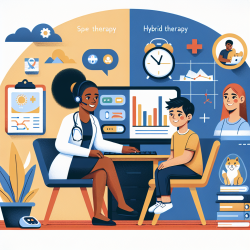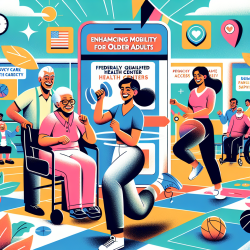Dear Practitioners,
The COVID-19 pandemic has presented unprecedented challenges and opportunities for the field of psychotherapy, particularly in the realm of online therapy. The editorial "Free research contributions during pandemic period: research is still alive" by Salcuni and Lingiardi (2021) highlights significant research findings that can inform and enhance your practice. This blog post will delve into some of these findings and discuss how you can apply them to improve your online therapy skills, especially when working with children.
Key Research Findings and Applications
1. Effectiveness of Intensive Short-Term Dynamic Psychotherapy (ISTDP) by Novice Therapists
Rocco et al. (2021) found that ISTDP provided by novice therapists significantly improved symptomatology and psychological functioning in patients with anxiety disorders. This suggests that even less experienced therapists can achieve substantial therapeutic outcomes, which is encouraging for practitioners new to online therapy.
Application: Implement ISTDP techniques in your online sessions, focusing on brief and intensive interventions. Training and supervision in ISTDP can be beneficial, even for those new to the field.
2. Psychodynamic Focus Groups for Caregivers of Chronic Disease Patients
Demma et al. (2021) demonstrated that caregivers participating in psychodynamic focus groups reported improved quality of life compared to those who did not. This highlights the importance of addressing the psychological needs of caregivers alongside patients.
Application: Consider integrating psychodynamic focus groups into your online therapy offerings. This can provide much-needed support for caregivers, enhancing the overall therapeutic environment.
3. Impact of Separation Anxiety on Emerging Adults
Bassi et al. (2021) explored how separation anxiety influences borderline personality dimensions through trait anxiety. Understanding these dynamics can help tailor interventions for young adults undergoing significant life transitions.
Application: Assess for separation anxiety in your young clients and address it through targeted interventions, such as anxiety management techniques and supportive counseling.
4. Therapists’ Perception of Online vs. In-Person Therapy
Messina and Löffler-Stastka (2021) found that therapists reported fewer clinical skills and lower feelings of "flow" in online therapy compared to in-person sessions. However, anxiety levels did not differ between the two modalities.
Application: Enhance your online therapy skills through continuous professional development and training. Focus on creating engaging and interactive online sessions to improve the therapeutic "flow."
Encouraging Further Research
The pandemic has underscored the need for ongoing research in psychotherapy. As practitioners, you can contribute to this body of knowledge by:
- Participating in research studies and sharing your clinical experiences.
- Implementing evidence-based practices and documenting their outcomes.
- Collaborating with academic institutions to explore new therapeutic approaches.
Conclusion
The research presented by Salcuni and Lingiardi (2021) offers valuable insights that can enhance your online therapy practice. By applying these findings and engaging in further research, you can contribute to the advancement of psychotherapy during and beyond the pandemic.
To read the original research paper, please follow this link: Free research contributions during pandemic period: research is still alive.










